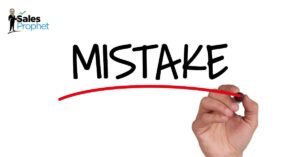The rapidly advancing commercial environment demands businesses across all industries to continually face the strain to achieve goals and maximize their income. As technology and automation progress, their sales and marketing teams have the chance to refine their operations and boost their outcomes by embracing automation.
Automation tools can revolutionize your team’s productivity:
- Automating Repetitive Tasks
- Providing Valuable Insights
- Streamlining Processes
- Improving Communication
Within this piece, we’ll discuss each of these benefits.
The Importance of Sales Performance
Sales performance is crucial for the success of any business. It directly impacts revenue, growth, and overall business success. However, with increasing competition and changing customer behaviors, sales teams face new challenges in meeting their targets.
According to a study by CSO Insights, only 54% of sales reps meet or exceed their quotas. This means that almost half of the sales team are not performing at their full potential. This is where sales automation tools come into play.
The Role of Automation in Sales Performance
Automation tools can help sales teams improve their performance in various ways. They can automate repetitive tasks, provide valuable insights, and streamline processes, allowing sales reps to focus on building relationships and closing deals.
Automation tools can also help sales teams stay organized and on top of their tasks, reducing the chances of missing out on potential opportunities. With the help of automation, sales reps can spend more time on high-value activities like talking to prospects vs. hunting for their prospect’s contact information or stalking them on social media, leading to improved sales performance.
The Rise of Sales Automation Tools
Sales automation tools have been gaining popularity in recent years and for a good reason. These tools offer many features and benefits that can help sales teams improve their efficiency and productivity.
Types of Sales Automation Tools
There are various types of sales automation tools available in the market, each with its own unique features and benefits. Some of the most common types of sales automation tools include:
- Customer Relationship Management (CRM) software: This tool helps sales teams manage prospect and customer interactions, track leads through the sales process, and monitor sales performance.
- Email automation tools help sales reps automate their email communication, allowing them to send personalized and timely messages to prospects and customers.
- Sales intelligence tools provide valuable insights and data on prospects and customers, helping sales reps tailor their approach and improve their sales pitch.
- Sales enablement tools provide sales reps with the necessary resources and training to improve their performance and close more deals.
Benefits of Sales Automation Tools
The benefits of sales automation tools are numerous, and they can significantly impact sales performance. Some of the key advantages include:
- Improved efficiency: Automation tools can help sales reps save time (their most precious commodity) by providing them with their ideal prospect’s contact information and automating repetitive tasks like sending introductory emails. There is no need to waste time hunting for contact information or writing one-off emails. Sales Automation eliminates the need to search for contact info and automatically allows sales reps to send as many emails as they wish. This helps scale their activity.
- Better organization: With the help of automation tools, sales reps can stay organized and on top of their tasks, reducing the chances of missing out on potential opportunities. Sales Automation platforms like SalesProphet.io can automatically create tasks based on the prospect’s behavior, which helps reps focus on leads showing the most buying behavior.
- Increased productivity: Automation tools can help sales reps be more productive and achieve their targets by streamlining processes and providing valuable insights. Did you know a salesperson only spends about 28% of their day talking to a prospect? That means 78% of their day is wasted on non-revenue-producing activities. Imagine if you could double the amount of time your salespeople spend actually talking to prospects.
- Cost savings: Automation tools can help reduce the cost of sales by improving efficiency and productivity, leading to a higher return on investment. Salespeople spend a lot of time on other activities like internal meetings, training, writing emails, creating proposals, and farming their existing clients. This activity increases your cost per sale.
How Sales Automation Tools Improve Productivity
Sales automation tools can have a significant impact on sales productivity. Here are some ways in which these tools can help sales teams improve their performance:
Automating Repetitive Tasks
Sales reps spend significant time on repetitive tasks such as data entry, email introductions, follow-up communications, and lead nurturing. Automation tools can help sales reps automate these tasks, freeing their time to focus on more critical activities such as building relationships and closing deals.
Providing Valuable Insights
Sales intelligence tools can provide valuable insights and data on prospects’ behavior, helping sales reps focus on prospects showing the most buying behavior. The sales automation platform can automatically create follow-up tasks based on prospect email open rates or click-through rates. This also allows salespeople to research those prospects in advance before talking to them so they can tailor their approach and improve their sales pitch. This can lead to more successful interactions and increased sales.
Streamlining Processes
Automation tools can help streamline lead management, sales forecasting, and reporting processes. This can help sales teams be more efficient and productive, improving sales performance.
Improving Communication
Effective communication is crucial for sales success. Automation tools such as email automation and sales enablement software provided by Sales Prophet can help sales reps, and marketing communicate more effectively with prospects and customers, leading to better relationships and increased sales.
The Future of Sales: Embracing Automation Tools
The future of sales is all about embracing automation tools to improve productivity and drive sales success. As technology continues to advance, sales teams will need to adapt and adopt automation tools to stay competitive.
The Importance of Sales and Marketing Collaboration
Sales and marketing teams have traditionally had a complicated relationship. Salespeople have historically said marketing departments don’t know what they need, and marketing professionals have historically said salespeople are only concerned about their compensation. However, with the rise of automation tools, it is more important than ever for these teams to collaborate and work together. By sharing information and resources, sales and marketing teams can create a more cohesive and effective sales strategy.
How to Choose the Right Sales Automation Tools
With so many sales automation tools available in the market, choosing the right one for your team can be challenging. Here are some factors to consider when selecting sales automation tools:
- Data: Look for a sales automation platform that has a data-first approach. Many of the sales automation solutions today scrape LinkedIn for their prospect data. This leads to a large number of personal emails vs. work emails since most people use their personal email when creating their LinkedIn profile. Sales Prophet is one of the only sales platforms that has an accurate database of work emails.
- Features and functionality: Look for tools that offer the features and functionality that align with your sales goals and processes. If you have an account-based email strategy, you must look closely at Sales Prophet.io. They have a patent pending account-based email solution that allows you to designate a top target as an ABM account and send one email to multiple personas at the same account in the same email.
- Integration capabilities: Choose tools that can integrate with your existing systems, such as your CRM.
- User-friendliness: The tools you choose should be easy to use and require minimal training for your sales team. The sales automation platform should have one-click integration with your salespeople’s email accounts and one-click interaction with your marketing department’s email accounts that might be using an SMTP service for higher volumes.
Note: CRM adoption rates with sales professionals have historically been low. This makes it very difficult to manage your sales pipeline if your reps dont have an easy-to-use sales automation platform. - Cost: Consider the cost of the tools and the potential return on investment they can provide. Look out for hidden fees like the number of contact records, accounts, users and inboxes you can use. Sales Prophet is one of the only platforms we know of that offers unlimited everything.
- Customer support: Look for reliable customer service to help you get the most out of the tools. Getting started in your sales automation journey can be mentally tasking, especially getting everything set up and integrated with your existing applications or processes. It might make sense to look for a platform provider that offers implementation services. While it might be more costly, you might increase your time-to-value by allowing the platform provider to set you up, which can reduce your total cost of ownership.
Real-World Examples of Sales Automation Success
Many companies have already embraced sales automation tools and have seen significant success. For example, Salesforce, a leading CRM software, has seen a 25% increase in sales productivity after implementing automation tools.
Another success story is that of HubSpot, a marketing and sales automation platform. By using their own automation tools, HubSpot has seen a 30% increase in sales productivity and a 50% increase in sales efficiency. SalesProphet.io has more than quadrupled its sales effectiveness and marketing results by utilizing its app.
In Conclusion
Sales automation tools are the future of sales. By embracing these tools, sales teams can improve performance, increase productivity, and drive sales success. With the right tools and strategies, sales teams can stay ahead of the competition and achieve their targets. So, don’t wait any longer; start exploring sales automation tools and take your sales performance to the next level.




